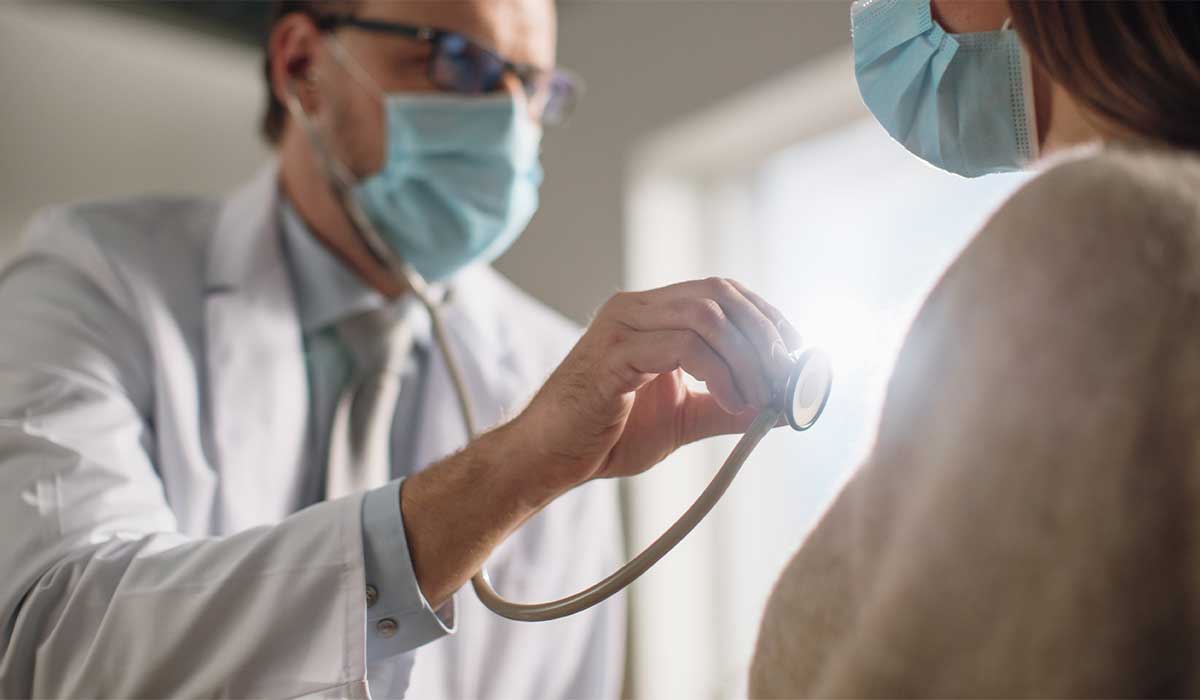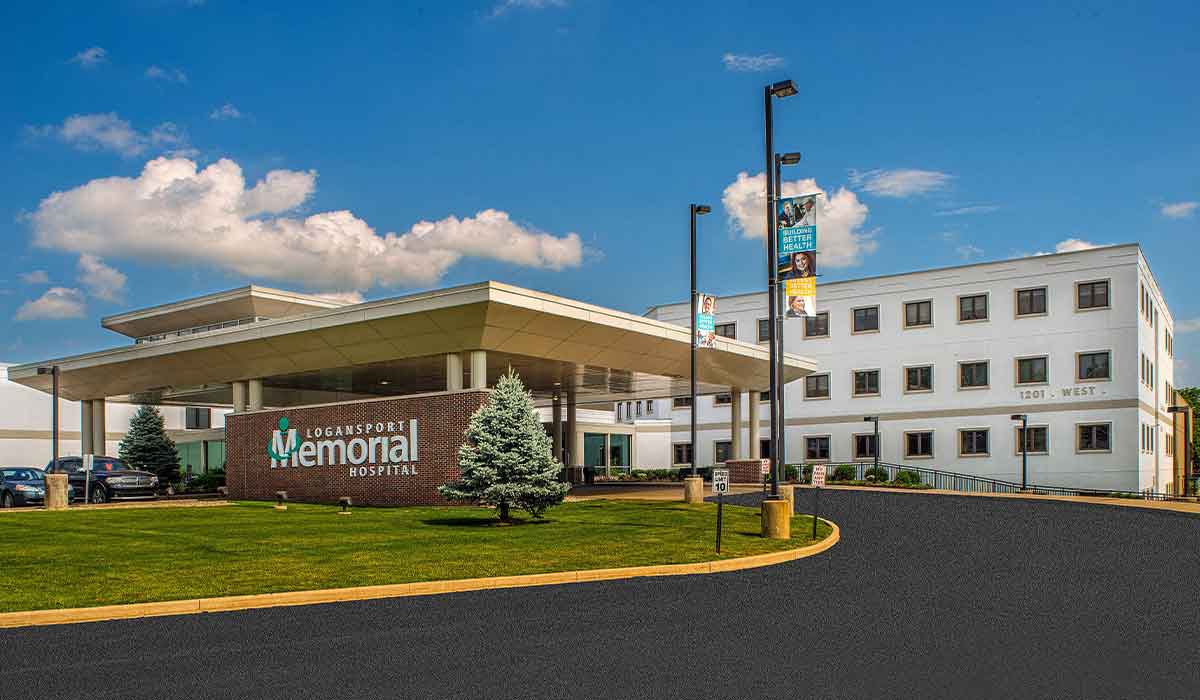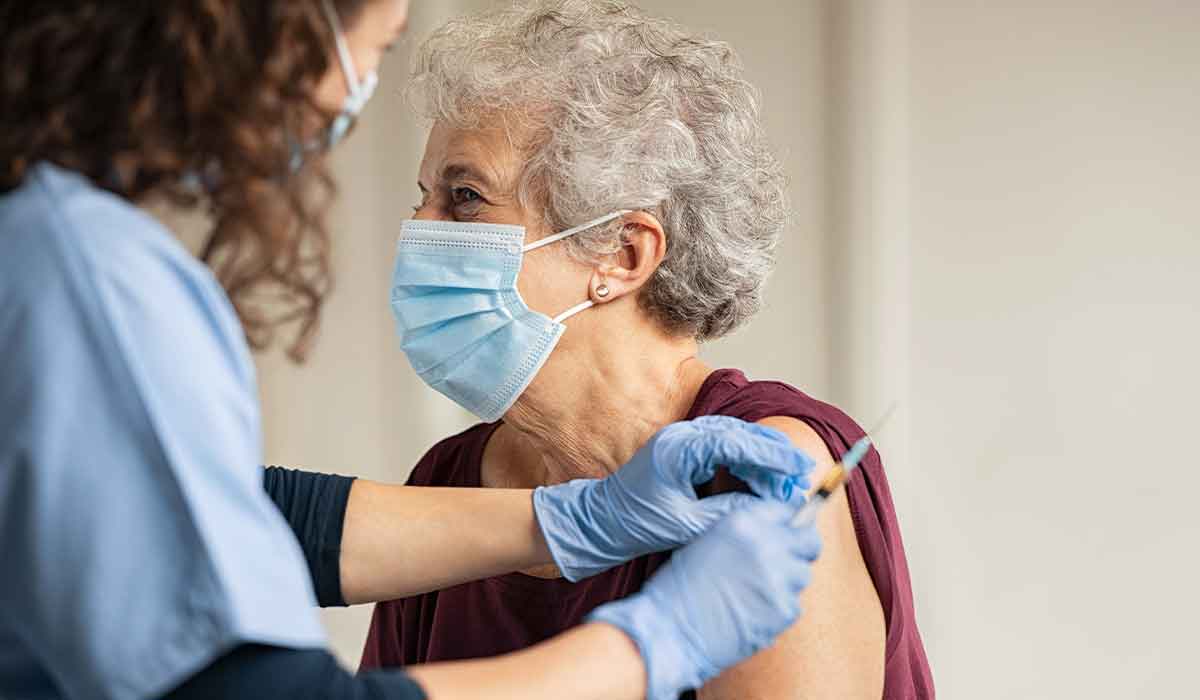Since the beginning of the COVID-19 pandemic in March 2020, many people have – or know someone who has – experienced the virus. According to the CDC, older adults and people with underlying health conditions are at a higher risk for severe illness and long-term complications from COVID-19. Like the symptoms and illness, recovery from COVID-19 is not the same for everyone.

COVID-19 recovery
Our board-certified pulmonologist, Dr. Abhishek Vedavalli, talks through recovery and wellness after being diagnosed with COVID-19. Dr. Vedavalli is certified in pulmonary disease and critical medicine, and specializes in diseases of the lung.
What services do you need after a COVID-19 diagnosis?
“A patient experiencing acute (did not require hospitalization or medical treatment) COVID-19 illness can be affected from symptoms for 20-30 days. If symptoms, such as shortness of breath, persist beyond the 30 days, it would be time for that patient to schedule an appointment with a pulmonologist. If a patient has been diagnosed with COVID-19 and has previous comorbidities, antibody and steroid treatment may be needed, based on timing. If you test positive for COVID-19, be sure to call your primary provider for guidance immediately and track your symptoms on your calendar, with the start of your symptoms as day one.”
As you are recovering from COVID-19, what are some things that you should watch for that require medical attention?
“After the acute illness (2-4 weeks, if managed at home), it’s important to watch out for symptoms including a high heart rate, dyspnea on exertion (shortness of breath), low oxygen, and chest pains. If you experience these symptoms while self-managing your diagnosis, it’s time to contact your provider for medical attention and treatment. If you feel you are experiencing an emergency from these symptoms, you should go to the ER for immediate medical assistance.”
What steps can you take to help yourself recover more fully from COVID-19?
“Again, after the acute illness — if symptoms persist, or you do not feel yourself recovering from COVID-19, you should take the following steps:
- Rehab
- Hydrate
- Pulmonary function test
- Chest CT
Pulmonary rehab can be useful for those needing additional help recovering from shortness of breath and lung complications from COVID-19. Staying hydrated will help your body recover — it’s important that you stay hydrated throughout your illness AND recovery. Your provider may have you get a chest CT and a pulmonary function test to ensure that your lungs are getting back to normal.”*
*New studies are underway to see if antibiotic medications can help prevent long-term damage to the lungs.
If someone is struggling to recover from COVID-19, what should they do for further care? What would be their course of action, and how quickly should they seek further treatment?
“After the patient’s initial diagnosis, the next step will most often be home self-care or antibody or antiviral treatment and steroids — and, depending on the situation/presentation, inflammation should subside in four to eight weeks. If COVID-19 symptoms, including shortness of breath or difficulty breathing, persist beyond the four to eight weeks, patients may have long-term cardiopulmonary damage. They will need to discuss management options with their provider and schedule follow-up appointments to monitor their symptoms and overall recovery.”
Pulmonary rehab for COVID-19 patients
When a little extra care is needed to recover from COVID-19, our pulmonary rehab team at Logansport Memorial Hospital is here to help. Our Pulmonary Rehab Coordinator Amanda Maxwell shares how pulmonary rehab can benefit patients recovering from COVID-19.
What does pulmonary rehab look like for COVID-19 patients?
“Pulmonary rehab for post-COVID-19 patients consists of monitored exercise and education to build endurance and lung functioning.”
How does pulmonary rehab help COVID-19 patients?
“Pulmonary rehab will help the patient better manage and/or alleviate any lingering pulmonary issues they may have, as well as build up their strength and endurance to help restore functional capacities they had to give up due to their illness.”
How do recovering COVID-19 patients access pulmonary rehab?
“Patients interested in pulmonary rehab will need to have their doctor send over a referral. Patients may also join our Phase 3 Rehab Program. Education is usually not included in this program, but we try to touch on the topics the patient needs. This option is $48 for 12 visits, and can be renewed as the visits run out.”
Is pulmonary rehab beneficial to recovering COVID-19 patients? Has it helped severe cases?
“Of the recovering COVID-19 patients we have served so far, a majority of them have been severe cases. All of those who are working through the pulmonary rehab program have stated they feel so much better compared to when they first started. Our recovering patients who have been on oxygen have now been able to be weaned to half of what they started with, and our end goal for them is no more oxygen at all.”
“Overall, building strength and endurance, educating our patients on retraining their breathing, and energy conservation (ways to move smarter) are the biggest takeaways for this patient population.”
Finding the care you need at Logansport Memorial Hospital
If you are struggling to recover from COVID-19, or feel like you would benefit from additional care and support through pulmonary rehab, our experts at Logansport Memorial Hospital are here to see you through to recovery. To make an appointment with our board-certified pulmonologist, call the LMPN Pulmonology office at (574) 753-5640.
Learn more about Dr. Abhishek Vedavalli »
To talk with our pulmonary rehab team about post-COVID-19 services, call (574) 753-1320.
Learn more about pulmonary rehab »




